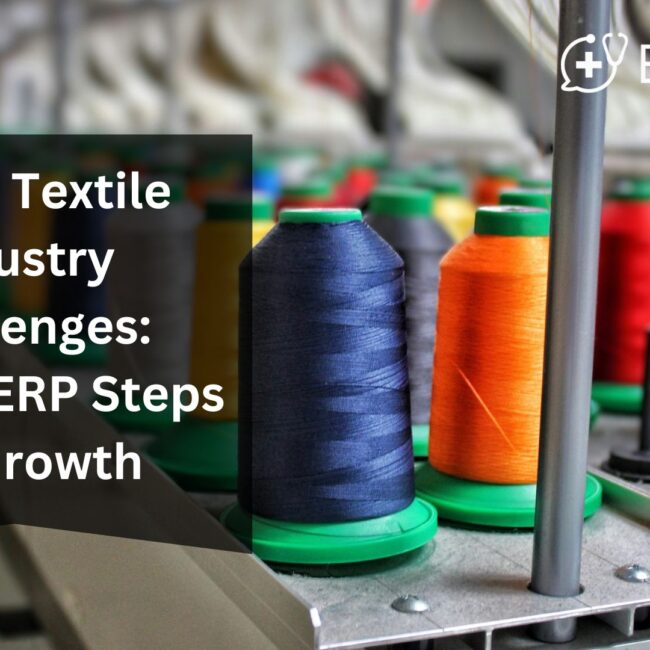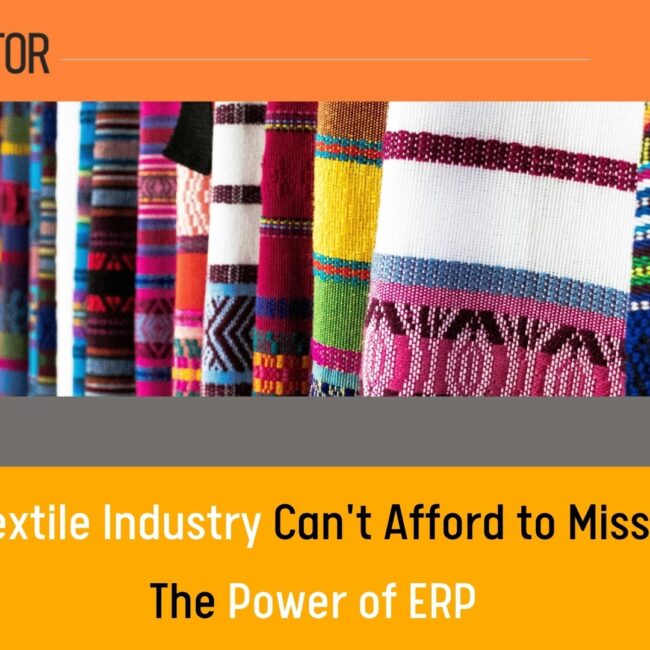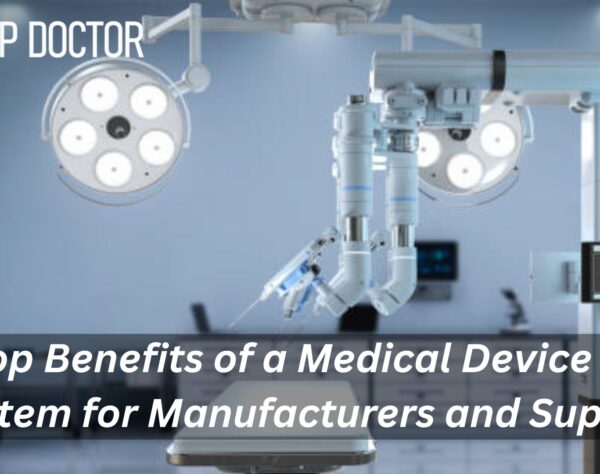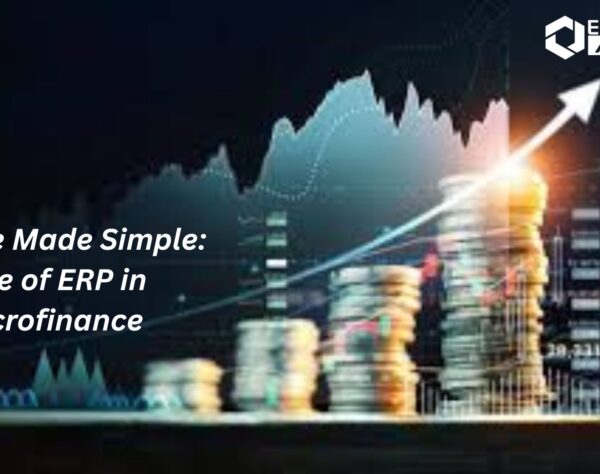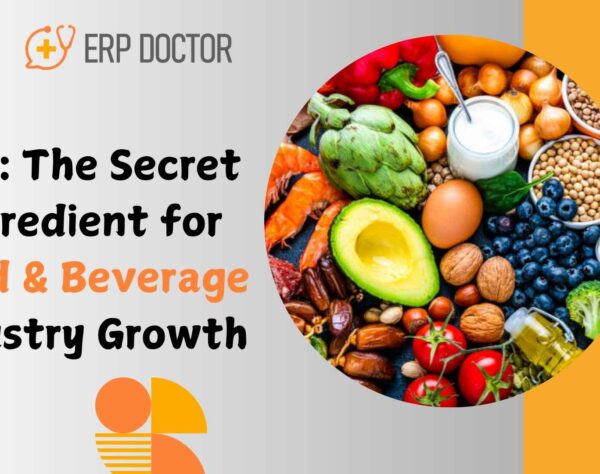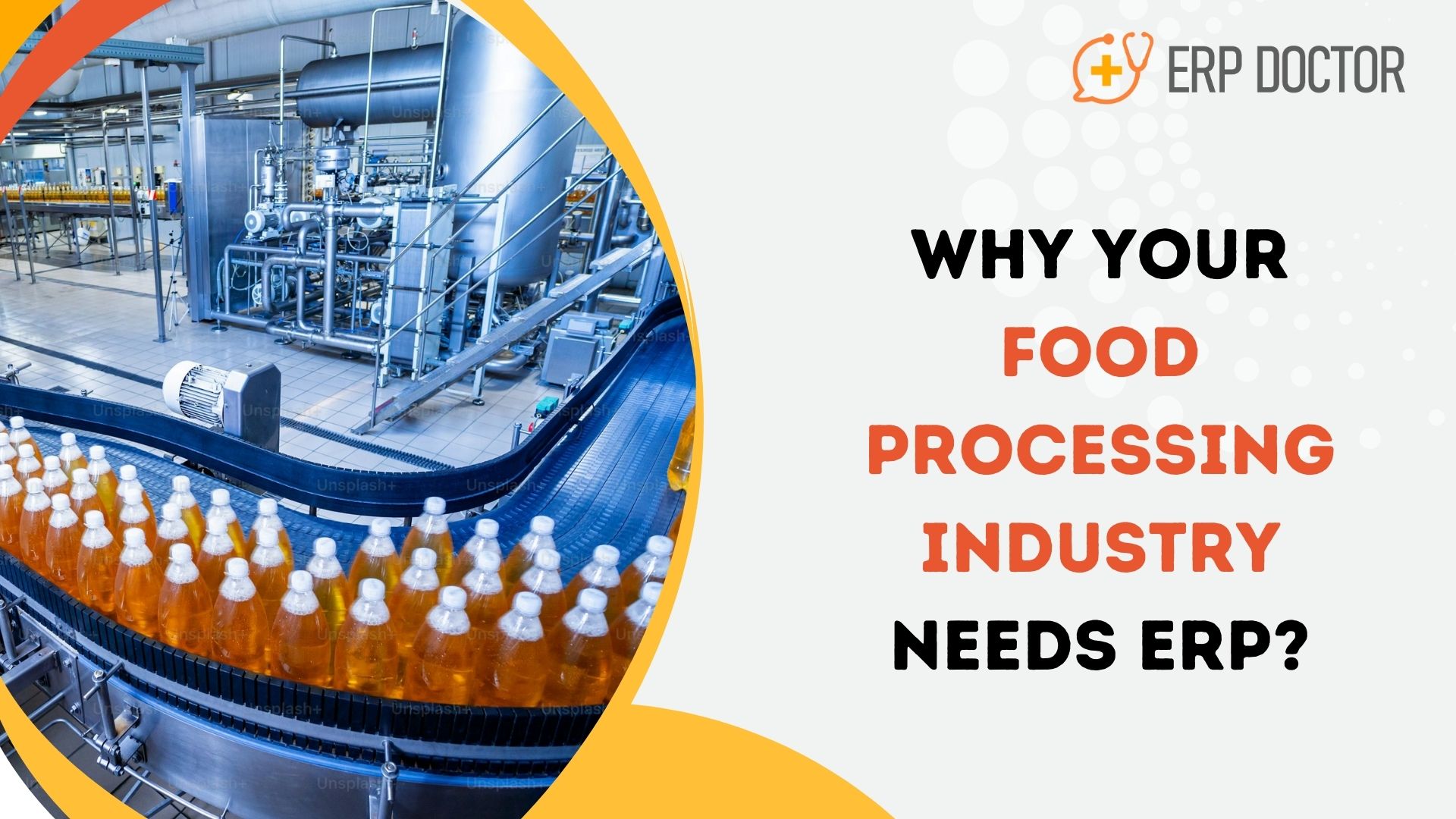
Why Your Food Processing Industry Needs ERP?
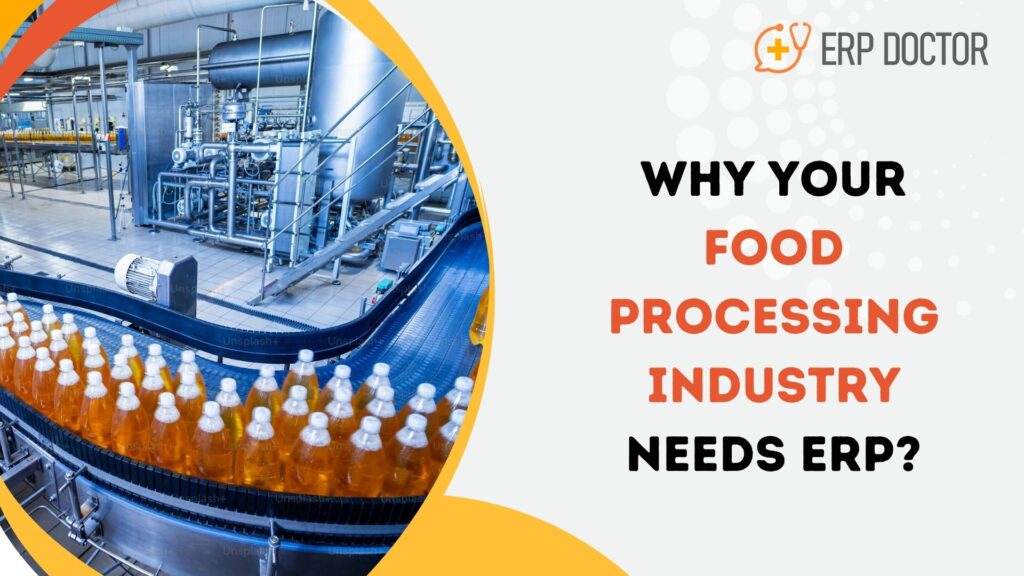
The Cure for Inefficient Food Processing: ERP
The food processing industry is a dynamic sector that requires meticulous attention to detail, efficient operations, and unwavering compliance with stringent safety standards. Managing this complexity without a robust enterprise resource planning (ERP) solution is challenging. This is where ERP steps in as your comprehensive partner, transforming your business operations into streamlined, efficient, and profitable workflows. Let us explore why your food processing industry needs popular ERP systems, such as SAP B1, SAP S/4 HANA, Tally Prime, Oracle Netsuite, and Microsoft Dynamics 365, contribute to your industry success.
The Specialized Needs of the Food Processing Sector
Food processing businesses face unique hurdles, including:
- Traceability and Compliance: Ensuring every ingredient’s origin, storage conditions, and distribution pathways are recorded to meet regulatory standards.
- Inventory Management: Balancing perishable inventory to avoid waste while meeting customer demands.
- Quality Control: Maintaining consistent product quality to build customer trust and loyalty.
- Supply Chain Complexities: Managing vendor relationships and raw material sourcing efficiently.
- Operational Efficiency: Integrating various departments to enable smooth workflows and real-time data access.
Addressing these challenges demands an ERP system designed specifically for food processing industries. Here’s why ERP is the perfect fit.
Why Choose ERP for Your Food Processing Business?
- Enhances Traceability: Ensures comprehensive tracking from raw material procurement to final product delivery, ensuring compliance with industry standards.
- Streamlines Inventory: Monitors stock levels, predicts demand, and minimizes waste with precise inventory management tools.
- Improves Quality Control: Automates quality checks and flags issues early to maintain high product standards.
- Simplifies Supply Chain Management: Provides real-time visibility into the supply chain, enhancing vendor collaboration and delivery timelines.
- Integrates Operations: Brings together financial, operational, and production data, allowing for seamless decision-making and workflow execution.
Exploring Popular ERP Systems
Seamless integration with some of the most powerful ERP systems available today provides unparalleled flexibility and scalability. Here’s how these systems compare and contribute to the food processing industry:
SAP Business One (SAP B1)
SAP B1 is designed for small to medium-sized enterprises (SMEs) and provides:
- End-to-End Integration: Combines financials, inventory, and production management into a single system.
- Batch Traceability: Tracks production batches for enhanced traceability and compliance.
- Real-Time Insights: Offers robust analytics to identify inefficiencies and optimize operations.
- Scalability: Grows with your business needs, ensuring long-term usability.
SAP S/4 HANA
SAP S/4 HANA is a next-generation ERP solution ideal for large enterprises with complex operations:
- In-Memory Computing: Processes data at lightning speeds for real-time insights.
- Advanced Analytics: Provides predictive capabilities for demand forecasting and quality control.
- Enhanced Supply Chain: Optimizes supply chain efficiency with intelligent automation.
- Global Compliance: Adapts to international standards, making it suitable for multinational food processors.
Tally Prime
Tally Prime, popular for its simplicity, caters to smaller businesses and focuses on:
- Accounting Efficiency: Streamlines accounting and GST compliance.
- Inventory Management: Helps track stock levels and reorder points.
- Cost-Effectiveness: An affordable solution for businesses starting their ERP journey.
- Ease of Use: Designed for users with minimal technical expertise.
Oracle NetSuite
Oracle NetSuite is a cloud-based ERP solution offering:
- Global Reach: Supports multi-currency and multi-language operations.
- Customizable Modules: Tailors processes for specific needs within the food industry.
- Real-Time Data Access: Ensures stakeholders have up-to-date information anytime, anywhere.
- Compliance Management: Facilitates adherence to local and international regulations.
Microsoft Dynamics 365
Microsoft Dynamics 365 integrates seamlessly with other Microsoft tools like Office 365 and Azure, offering:
- Unified Platform: Combines CRM and ERP capabilities into a single platform.
- AI-Driven Insights: Utilizes artificial intelligence for predictive analytics and customer behavior insights.
- Scalability: Supports businesses of all sizes with its modular approach.
- Collaboration Tools: Enhances team collaboration through integrated communication features.
Advantages of Integrating with Top ERP Solutions
When ERP systems like SAP B1, SAP S/4 HANA, Tally Prime, Oracle NetSuite, or Microsoft Dynamics 365, your food processing business gains:
- Enhanced Data Accuracy: Eliminates manual errors by automating data collection and reporting.
- Improved Decision-Making: Provides actionable insights through real-time data visualization.
- Operational Agility: Enables quick responses to market changes and customer demands.
- Cost Optimization: Reduces operational costs by minimizing waste and improving resource allocation.
- Customer Satisfaction: Ensures timely deliveries and consistent product quality, boosting customer trust.
Real-Life Use Cases
- Batch Tracking for Regulatory Compliance: With ERP integrated with SAP B1, a mid-sized food processor was able to streamline batch tracking, ensuring compliance with FDA regulations.
- Predictive Analytics with SAP S/4 HANA: A multinational beverage company leveraged SAP S/4 HANA’s predictive analytics to anticipate market trends and adjust production schedules accordingly.
- Simplified Accounting with Tally Prime: A small bakery chain used Tally Prime to manage their financials and inventory effortlessly, allowing them to focus on scaling their business.
- Global Expansion with Oracle NetSuite: A growing organic food brand utilized Oracle NetSuite’s global capabilities to expand operations into multiple countries seamlessly.
- Collaboration with Microsoft Dynamics 365: A dairy cooperative improved collaboration between its supply chain and sales teams, resulting in faster decision-making and reduced waste.
FAQs for Food Processing ERP Solutions
Q1: What is the purpose of a food processing ERP solution?
A food processing ERP solution is designed to address the unique challenges of the food processing industry, offering comprehensive tools for inventory management, compliance, quality control, and supply chain optimization.
Q2: How do food processing ERP solutions integrate with SAP systems?
Food processing ERP solutions integrate seamlessly with SAP B1 and SAP S/4 HANA, enabling enhanced traceability, advanced analytics, and streamlined operations tailored to the food industry.
Q3: Are food processing ERP solutions suitable for small businesses?
Yes, food processing ERP solutions are highly customizable and can be paired with solutions like Tally Prime to meet the needs of small to medium-sized businesses.
Q4: What sets food processing ERP solutions apart from other ERP solutions?
Food processing ERP solutions are designed specifically for the food processing sector, focusing on compliance, traceability, and operational efficiency while integrating with leading ERP systems for flexibility and scalability.
Q5: Can food processing ERP solutions help with regulatory compliance?
Absolutely. Food processing ERP solutions provide robust tools for batch tracking and documentation, ensuring adherence to both local and international regulatory standards.
Q6: How do food processing ERP solutions support global food processing businesses?
By integrating with platforms like Oracle NetSuite and Microsoft Dynamics 365, food processing ERP solutions enable multi-currency, multi-language, and global compliance features, making them ideal for international operations.
Q7: How can food processing ERP solutions improve supply chain management?
Food processing ERP solutions can improve supply chain management by providing real-time visibility into inventory levels, tracking shipments, and automating order management, enabling businesses to respond quickly to changes in demand and supply.
Q8: What kind of support and training is typically provided with food processing ERP solutions?
Typically, food processing ERP solutions come with comprehensive support and training, including implementation services, user documentation, and ongoing technical support, to ensure a smooth transition and optimal use of the system.
Expert Food Processing ERP Solutions
The food processing industry requires precision, compliance, and efficiency to succeed. A well-integrated ERP system can deliver these qualities, taking your business to the next level. By combining powerful ERP solutions like SAP B1, SAP S/4 HANA, Tally Prime, Oracle NetSuite, and Microsoft Dynamics 365, you can achieve unmatched operational excellence. Whether you’re a small business just starting out with ERP or a large enterprise seeking cutting-edge solutions, our expert ERP solutions ensure your business remains competitive and profitable.
It’s time to revolutionize your food processing business. Contact ERP Doctor today and discover how our solutions can elevate your operations to the next level.
Want to speak to an expert? Fill in the form below, and we will be in touch with you shortly!
Warning: Trying to access array offset on value of type null in /home/u231991539/domains/erpdoctor.in/public_html/wp-content/plugins/wpforms/includes/class-frontend.php on line 109


